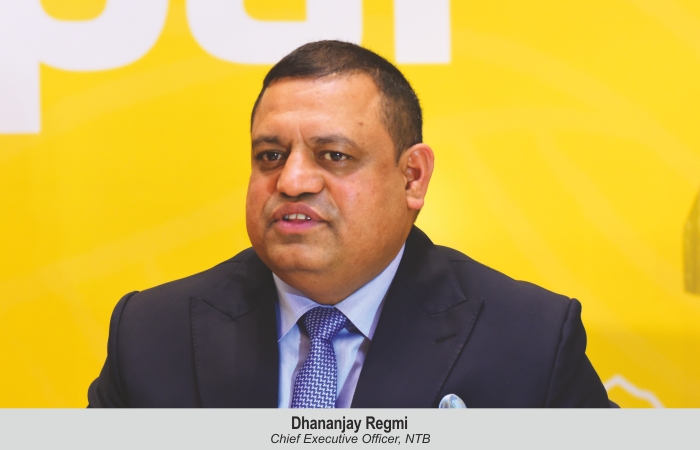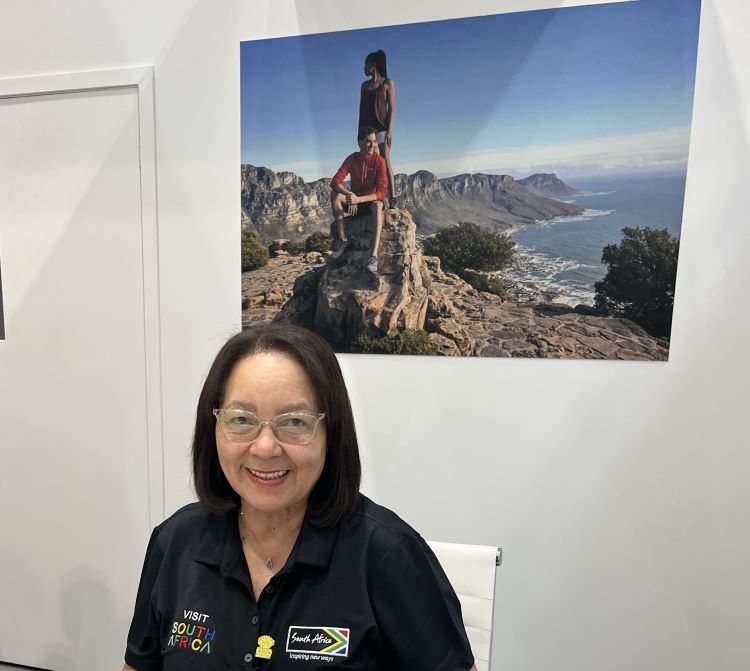Dr.DhananjayRegmi, Chief Executive Officer, Nepal Tourism Board (NTB), shares how they are using the pandemic as an opportunity to change the image of Nepal, while ensuring that the country’s tourism manpower stays afloat by providing them with alternate employment till the sector revives.
NishaVerma
When the entire world was closed owing to the pandemic, Nepal wooed tourists by giving them an opportunity to climb Mt Everest and other peaks. Dr.DhananjayRegmi, Chief Executive Officer, Nepal Tourism Board (NTB), says, “We opened climbing for international tourists this year since Mt Everest and other peaks were closed from the China side. At present, we have a significant number of tourists, but it isn’t much as compared to 1.2 million in 2019. To attract tourists, we are also trying to make protocols easier and our policies liberal.”
Biggest markets
Nepal focused on India as a pilgrimage tourism market with Pashupatinath and Muktinath, and rest of the world for adventure tourism for trekking, climbing, etc. “During the pandemic, we realised that we could promote Nepal for a number ofproducts all year-round instead of promoting it seasonally for adventure. Hence, we got the idea of promoting 800 km of our mid hills with the hill stations. Indians are currently interested in adventure activities as well as hill stations, instead of just pilgrimage. Apart from Kathmandu and Pokhara, we haven’t promoted our lesser-known places, especially for people living along the border for whom Darjeeling and Shimla is far,” informs Regmi.
The tourism board realised that by developing these mid hills, it can attract more Indian tourists and this could be a major market, for which even the government has announced some policies. “Earlier we relied on the international airport, but now we need to connect with every railway station adjoining our borderand every bus stop, facilitating tourist movements in both the countries. This would also benefit the Nepali people, who are going to India for education as well as for medical reasons. It is a win-win for both countries as Nepal also gets benefitted by providing better facilities to Indian tourists looking for relief from summer temperatures. In fact, even for adventure, if we properly advertise in India, we don’t even have to look for other markets.” Regmi added.
Helping the workforce
Regmi shares that because of the pandemic and no climbing, number of tourists in the mountains had significantly decreased. People visiting these areas and religious sites, needed services from porters, guides, Sherpas, cooks, etc. Now the drop in tourists has severely impacted the manpower working on the mountains. “While there was a negative impact on the entire hospitality and tourism industry, we were more worried about the people in the mountains who had lost their livelihoods.
Hence, we thought of using the COVID times for the betterment of our mountain friends, and came up with new job opportunities. We tied up with the UNDP–The United Nations Development Programme – and other international organisations to create an employment programme. Under that, we are giving almost 5,000 people short-term employment. Besides this, we are focusing on infrastructure development, especially porter houses and building bridges which is helping us support people in the tourism industry. There is already a lot of brain drain; we don’t want a skill drain,” he insists.
Revival strategy
It was only during the pandemic that NTB thought about such ideas. “The pandemic prompted us to re-strategize. We did SWOT analysis of Nepal tourism and thought of making Nepal a year-round and all-age destination. Hence, to change the image of Nepal, we are going to focus more on the culture and our natural diversity as we have landforms running from 60m to the top of the world. People and culture are the major attractions of Nepal. We decided to make accessible trail for people who cannot walk or are on wheelchair. We have already developed an accessible trail in Pokhara,” he shares. They are also focusing on spiritual and wellness tourism, as well as educational programmes for children, which in turn would attract the parents.
 TravTalk India Online Magazine
TravTalk India Online Magazine





